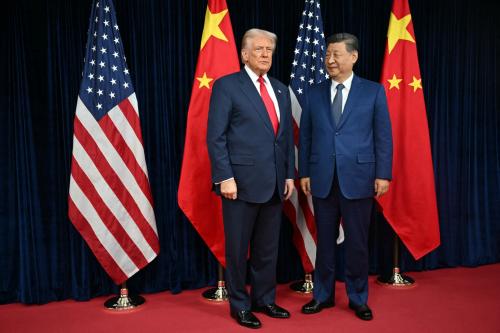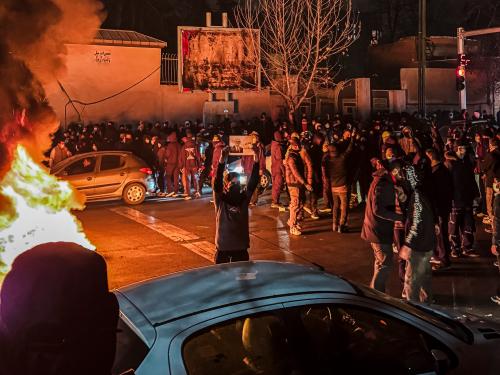

2:00 pm EDT - 3:00 pm EDT
Past Event
2:00 pm - 3:00 pm EDT
1775 Massachusetts Ave NW
Washington, D.C.
20036
With the war in Ukraine well into its fourth year and negotiations advancing in fits and starts, questions are mounting over how the world’s major powers might shape the terms—and outcomes—of any eventual peace. What role, if any, should China play in a potential cessation of hostilities in Ukraine? Can the Trump administration influence China’s policies toward Ukraine and Russia? What should it seek from Beijing and what should it guard against? These questions are playing out within a broader U.S.-China relationship marked by growing strategic rivalry, yet shaped by an enduring need to coordinate on global challenges.
On Tuesday, June 3, the John L. Thornton China Center at Brookings hosted a fireside chat with former U.S. Ambassador to China (2021-2025) and NATO (2001-2005) R. Nicholas Burns. Moderated by Brookings scholars Patricia Kim and Jonathan Czin, the conversation examined how the United States and China might influence the trajectory of the war in Ukraine, and how both nations can manage global responsibilities while navigating rising strategic tensions.
Audience Q&A followed the discussion. Viewers submitted questions via email to [email protected] and via X (Twitter) to @BrookingsFP using #GlobalChina.
This event is a part of the Brookings Global China project, which advances policy recommendations on how the United States should respond to China’s actions that affect key American interests and values. A companion written Q&A on this topic featuring Brookings scholars offers additional perspectives.



Ryan Hass
January 26, 2026

Elaine Kamarck
January 23, 2026

Aslı Aydıntaşbaş, Mara Karlin, Suzanne Maloney
January 22, 2026